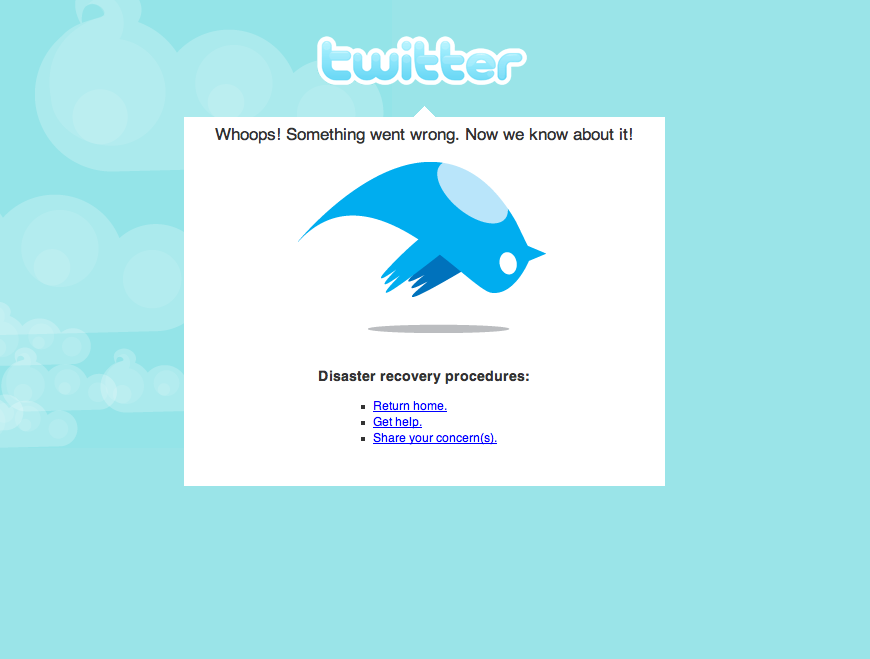The State of Social Media: When Communication Becomes Chaos
Screenshot from Flickr by Pixelant.
There was a time when social media felt like a communication revolution. It opened doors to connect with people across the globe, breaking down barriers and democratizing conversations. Suddenly, you could directly communicate with actors, comedians, business leaders — people you'd never meet otherwise. My kids marveled when they discovered Vanilla Ice was following me on Twitter, but he never replied to my DM. ¯\_(ツ)_/¯
I loved how you could meet someone at a tech event, follow up on Twitter, and keep the dialogue going. Or we'd first connect online, then strengthen that relationship in person at a "tweetup," conference, or "unconference." It was authentic, human communication — playful, exploratory, and full of possibility. The magic happens with hugs, handshakes, and high-fives... and lest we forget fist bumps.
Then the business model changed — and so did communication
When social platforms went public, the game shifted. Shareholders and boards demanded more revenue, pushing platforms to maximize engagement at any cost. And what keeps us engaged? Content that triggers the strongest reactions.
It's the same principle behind the old media adage: "If it bleeds, it leads." But unlike newspapers, which had editorial oversight, today's algorithms decide what we see based purely on what gets the most clicks — not what's thoughtful, balanced, or helpful. This has fundamentally altered how we communicate online. Conversations are now often driven by outrage, fear, or sensationalism, rather than curiosity or genuine connection.
We can't even trust who we're communicating with
It's not just what we see, but who we're talking to. Bots and AI agents have become so sophisticated and widespread that it's increasingly difficult to tell if you're engaging in real human communication at all.
Then there's the nefarious actors and simple trolls who use social media fan flames of division, a striking example was when Russian operatives created Facebook groups that organized opposing protests outside an Islamic center in Houston, Texas—one anti-Islam and one pro-Muslim—effectively turning Americans against each other, all orchestrated from Russia for around $200. It's a chilling example of how easily our communication channels can be hijacked to sow chaos and deepen divisions.
What once promised meaningful dialogue has been distorted into a landscape where you should question every online interaction, or you should be.
The slow erosion of networks for real communication
That's why I believe the days of social networks — at least as platforms for forming new relationships — are coming to an end. The remaining value is primarily in helping us maintain communication with people we already know, such as friends, family, and colleagues.
Facebook still exists for that reason, though engagement is already dropping in the U.S. and Canada, especially among younger users. LinkedIn continues to be effective for professional communication, but if algorithms continue to prioritize attention over authenticity, even that utility could fade. Recently, LinkedIn significantly reduced the number of personal notes that could be included in connection requests. I've always taught my clients to include that note to remind the person who you are and where you met IRL. Want access to more personal notes? Now you need to pay LinkedIn.
Ultimately, meaningful communication comes back to proximity and directness. We'll meet at a networking event. I'll send you a follow-up email. Maybe we'll grab coffee or chat on Zoom. We'll build trust through conversation, stay in touch, and reconnect at future conferences.
If I want to be introduced to someone, I won't rely on LinkedIn — I'll reach out to the person directly. That's going to put more pressure on us as professionals to organize our contacts thoughtfully, maybe with a solid CRM or even just a smarter inbox. If tools like Gmail and Outlook start building better relationship features, they could become the new hubs for professional communication, as email is still king.
So how do we protect our communication from all this noise?
I still stand by what I wrote in New Business Networking: Don't put anything online you wouldn't want your parents or grandparents to see.
Slow down and take a breath before diving into Facebook, LinkedIn, Instagram, TikTok, YouTube, or even X (if you still use it — I don't recommend it) — especially the feeds. Notice how a headline, post, or thread makes you feel. If it spikes anger, fear, or anxiety, close the app or tab. Recognize that these platforms are designed to manipulate our communication, to turn our emotional reactions into profit.
This isn't about tuning out from important issues. It's about being wise communicators — understanding that many online stories are shaped by business incentives, malicious actors, misinformation, and deliberate disinformation intended to divide us. It's also key to question how a story affects you and, if it does, what you plan to do about it other than sharing the story in the digital echo chambers. Instead, call your elected official to express your concerns, boycott the unethical business in question, register to vote, support a nonprofit that is fighting for what you believe, or volunteer your time. You get the idea.
Communication still matters — more than ever
The internet can still fulfill its early promise of powerful connection and meaningful communication. But that will only happen if we approach it with more discernment, more skepticism, and a deeper commitment to building human relationships beyond the reach of manipulative algorithms. There's power in proximity.

